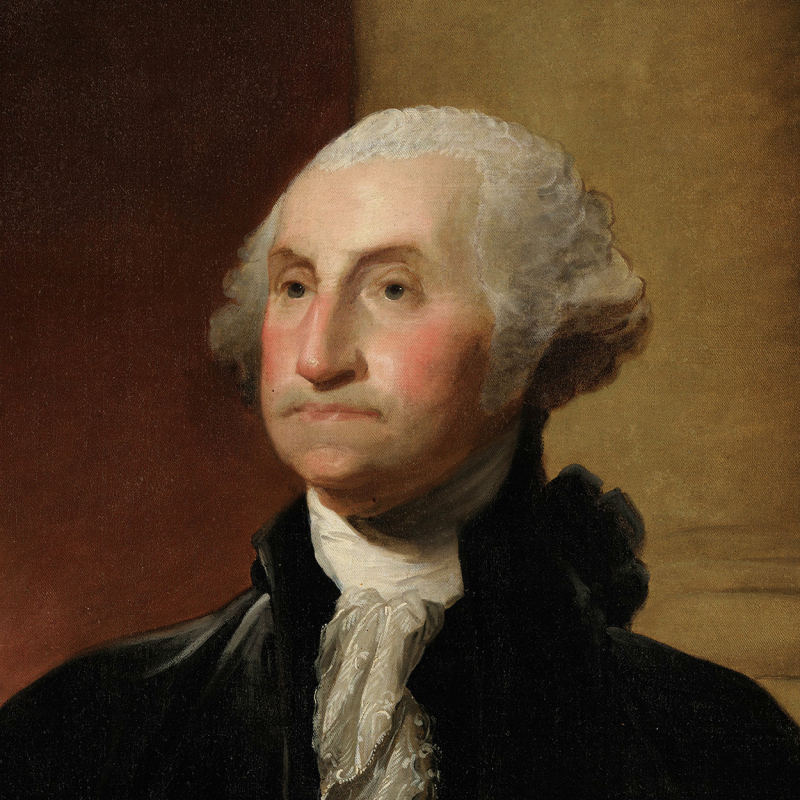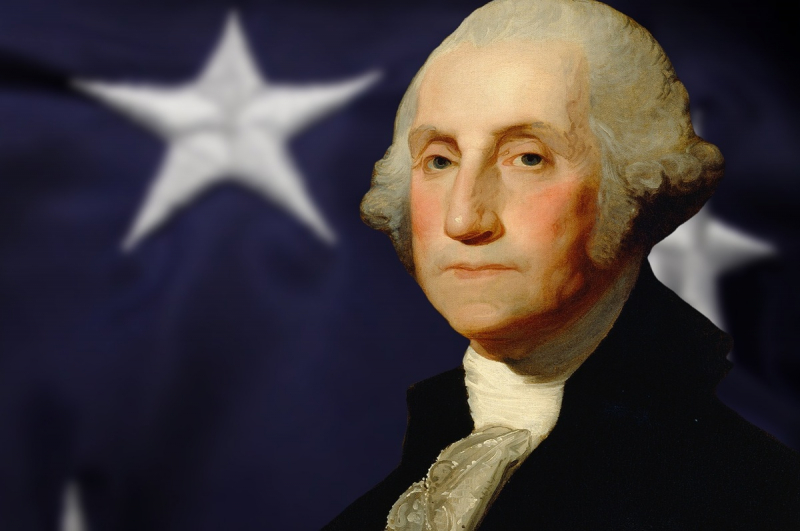George Washington
George Washington (February 22, 1732 - December 14, 1799) was an American military officer, statesman, and Founding Father who served as the country's first president from 1789 to 1797. As commander of the Continental Army, Washington led the Patriot forces to victory in the American Revolutionary War and served as president of the Constitutional Convention of 1787, which established the United States Constitution and the American federal government. Washington has been dubbed the "Father of the Nation" for his exemplary leadership during the country's formative years.
From 1749 to 1750, Washington held the position of official surveyor of Culpeper County, Virginia. During the French and Indian War, he received his initial military training (as well as a command with the Virginia Regiment). Later, he was elected to the Virginia House of Burgesses and appointed as a delegate to the Continental Congress, where he was appointed Commanding General of the Continental Army. During the American Revolutionary War, he commanded American forces (allied with France) in the defeat and surrender of the British at the Siege of Yorktown. After the Treaty of Paris was signed in 1783, he resigned his commission.
Washington was critical in the adoption and ratification of the United States Constitution. He was then unanimously elected president by the Electoral College twice. As president, he established a strong, well-funded national government while remaining impartial in the cabinet rivalry between Thomas Jefferson and Alexander Hamilton. During the French Revolution, he declared neutrality while supporting the Jay Treaty. He established long-lasting precedents for the presidency, such as using the title "Mr. President" and swearing the Oath of Office on the Bible. His Farewell Address is widely regarded as the most authoritative statement on republicanism.
Washington had a complicated relationship with slavery as a slave owner. During his lifetime, he had over 577 slaves who were forced to work on his farms and wherever he lived, including the President's House in Philadelphia. As president, he signed legislation that both protected and limited slavery. His will stated that one of his slaves, William Lee, would be freed upon his death, and that the other 123 slaves would work for him and be freed upon his wife's death. She set them free during her lifetime to remove the incentive to hasten her demise.
He attempted to integrate Native Americans into Anglo-American culture. During the Revolutionary War and the Northwest Indian War, he did, however, wage military campaigns against hostile Native American nations. He was a member of the Anglican Church and the Freemasons, and in his roles as general and president, he advocated for broad religious freedom. When he died, Henry "Light-Horse Harry" Lee praised him as "first in war, first in peace, and first in the hearts of his countrymen".
Washington has been memorialized by monuments, a federal holiday, various media depictions, geographical locations, including the national capital, the State of Washington, stamps, and currency, and he is regarded as one of the greatest U.S. presidents by many scholars and ordinary Americans alike. Washington was posthumously promoted to General of the Armies of the United States, the highest rank in the United States Army, in 1976.












